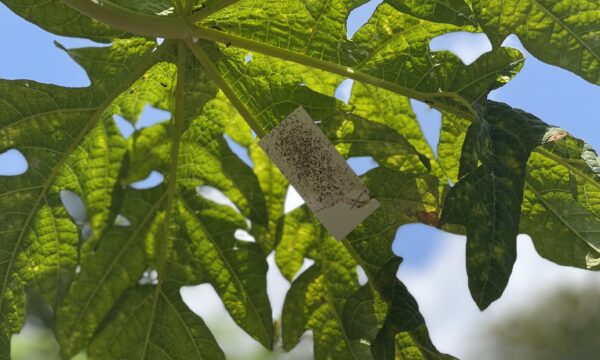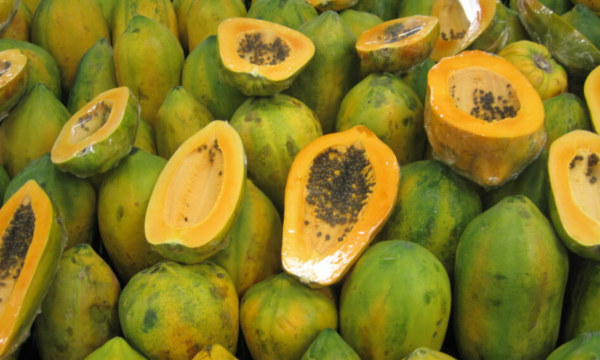
Naturally biodegradable insect-repelling chemical developed by researchers to target agricultural insect pests (© Pexels)
A team of researchers from the Technical University of Munich (TUM) have developed a biodegradable agent that repels insect pest activity amongst crops without the use of insecticide chemicals.
The use of synthetically produced insecticides in large quantities has been shown to negatively impact on local insect biodiversity and environmental health (e.g. soil and water quality). One such controversial impact which has become an ever increasing threat is that of bee population numbers being reduced due to insecticide use.
Professor Thomas Bruck, Chair of Synthetic Biotechnology at TU Munich and his team have now found an alternative. The insect repellent they have developed has been shown to be ecologically harmless and biodegradable. Being sprayed on crops, the repellent works similar to mosquito repellent, a chemical is released into the air which reduces insect presence.
“With our approach, we are opening the door to a fundamental change in crop production,” says Bruck. “Instead of spraying poison, which inevitably also endangers useful species, we deliberately merely aggravate the pests.”
The research team were inspired by the tobacco plant, which produces a molecule known as cembratrienol (CBTol) on its leaves that protects the plant from insects. Using synthetic biotechnology tools, the team were able to isolate the tobacco genome which is responsible for the production of CBTol and inserted this into the genome of bacteria. Using wheat bran, a widely available by-product from grain mills to feed bacterial, the genetically modified bacteria then self-produce the CBtol molecule.
Initial investigations showed that CBTol spray is non-toxic to insects and other species, yet it is a potent repellent. The fact that this product is biodegradable also results in a greatly reduced accumulation of chemicals in the local environment. This spray has also been shown to contain antibacterial properties, therefore being able to be used as a disinfectant spray that acts specifically against MRSA, pneumonia and listeriosis pathogens.
If you would like further information on this subject, please see the links below:
3 Comments
Leave a Reply
Related News & Blogs
‘Sowing the seeds’ for food security in Uganda: CABI supports training for Quality Declared Seed production
CABI has been working with Zirobwe Agali-Awamu Agribusiness Training Association (ZAABTA), the Ministry of Agriculture, Animal Industry and Fisheries (MAAIF), the National Agricultural Research Organisation (NARO), and Integrated Seed Sector Developmen…
21 May 2025





[…] Environmentally Friendly Insect Repellent for Agriculture […]
Please advise the name of insects spray
This is a very informative—edifying article to all. Thanks a lot! Continue to post!